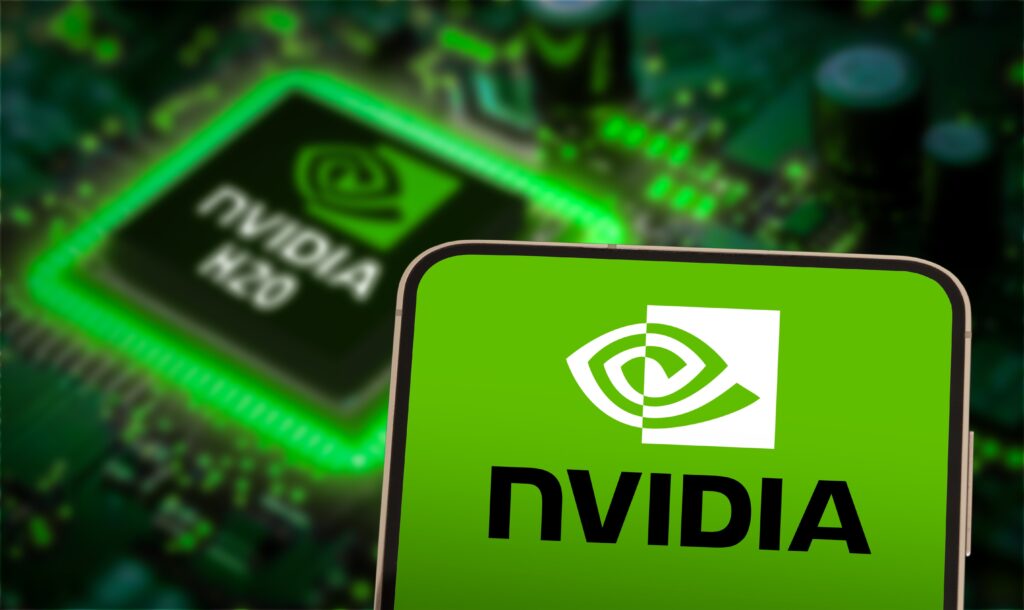South Korea steps into a leading AI role
Nvidia will provide more than 260,000 of its most advanced AI chips to South Korea’s government and major companies including Samsung, LG, and Hyundai. The chips will power production in factories making semiconductors, robots, and autonomous vehicles. Chief executive Jensen Huang said the partnership allows South Korea to “export intelligence as a new product.” He did not disclose the value of the contracts.
The announcement closes a groundbreaking week for Nvidia. On Wednesday, it became the first company in history to reach a $5 trillion market valuation. A day later, signs of easing trade tensions between Washington and Beijing raised hopes that chip exports to China might resume.
At a CEO summit during the Asia-Pacific Economic Cooperation meeting in Gyeongju, Huang said the chips will allow companies to create “digital twins” of their factories. The deal marks Nvidia’s broader effort to expand AI infrastructure and deepen its role in global manufacturing.
Global partnerships power Nvidia’s rapid rise
Nvidia’s global alliances have been key to its explosive growth. The company continues to cement its position as the dominant force in the AI industry.
However, its latest South Korean deals come amid ongoing fallout from the US-China trade conflict. China once accounted for more than ten percent of Nvidia’s revenue, but new export restrictions have cut off access to its most powerful chips.
“We used to have 95% of the AI business in China. Now we’re at zero,” Huang said in Gyeongju. “I’m disappointed by that.”
Signs of progress in China trade talks
After meeting Chinese President Xi Jinping, former US President Donald Trump announced that Beijing would begin talks with Nvidia about possible chip sales. Trump called the discussions a matter between China and Nvidia but said the US would act as a “referee.”
On Friday, Huang expressed his wish to sell Nvidia’s latest Blackwell chips to China, though the final decision rests with the US President. Current export rules continue to restrict sales of Nvidia’s most advanced AI processors to Chinese customers.
Huang did not provide updates on the talks but said he hopes for new trade policies. “It’s in America’s interest to have the China market,” he said. “And it’s in China’s interest to access American technology. We want American innovation to define global standards.”
South Korea builds toward an AI-powered future
South Korea, already a global leader in semiconductors and automotive technology, plans to become a regional AI hub.
Huang described the country as perfectly positioned for AI growth thanks to its energy capacity, land availability, and world-class factories. President Lee Jae Myung has pledged to prioritise AI investment, particularly in response to US tariffs.
With Nvidia’s support, South Korea will create national computing systems under the idea of “sovereign AI.” More than 50,000 Nvidia chips will power data centres at the National AI Computing Center and at companies such as Kakao and Naver.
Asia’s supply chains strengthen Nvidia’s edge
Nvidia depends heavily on Asia’s advanced manufacturing network. While the company designs its chips, it relies on partners like Samsung, SK Hynix, and TSMC for production.
TSMC manufactures Nvidia’s most advanced processors, including the flagship Blackwell series. Samsung provides parts for the H20 processor, a modified version built to comply with US export restrictions for China.
US security experts have warned that selling high-end AI chips to China could strengthen Beijing’s military and technological edge. In response, China has accelerated domestic innovation. Huawei and Alibaba have launched their own AI chips, claiming they can compete with Nvidia’s designs.
Beijing has also reportedly instructed local firms to reduce purchases from Nvidia and buy from Chinese manufacturers instead.
“We deeply respect China’s technological capabilities,” Huang said on Friday.
Investors embrace Nvidia’s global expansion
Nvidia’s share price surged this week after it announced a wave of new partnerships. The company signed deals with the US Department of Energy, Nokia, Uber, and Stellantis, boosting investor confidence in AI’s long-term profitability.
Speculation about renewed trade with China after Trump’s meeting with Xi further lifted the stock. Nvidia’s expanding global reach underscores its determination to lead the AI revolution while balancing innovation, competition, and international politics.


